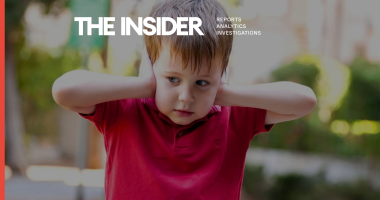Cruelty-based intervention: Russia is set to reintroduce antipsychotic drug as autism treatment
In the spring of 2024, the Russian Society of Psychiatrists (RSP) proposed new clinical guidelines for the treatment of pediatric autism. If the changes are adopted, starting in 2025 all Russian doctors will be required to prescribe haloperidol to children diagnosed with autism. The drug is ineffective for treatment and has many side effects, experts warn. It is expected that, once the new system is introduced, autism will be diagnosed even less frequently in Russia — it is already diagnosed tens of times less frequently than in the United States — and autistic children will be deprived of chances for social adaptation. Both tutors and parents of children with autism fear that the new initiative will result in the exclusion of special-needs children from society.
- If the Ministry of Health adopts its new guidelines, modern approaches will give way to Soviet-era methods — specifically, the use of a potent first-generation neuroleptic called haloperidol (also sold under the brand name Haldol). Adherents of modern behavioral management therapy approaches for ASD condemn these recommendations, calling them “medieval” and comparing them to treating mental disorders with lobotomies.
- What is even worse, starting from 2025, the Ministry of Health’s clinical guidelines will become mandatory for all medical professionals in Russia.
- Even before the new regime goes into effect, the human cost of Kremlin policy is already being felt. In April 2024, the Denisovs (their name has been changed), a young family raising a child with ASD in the north of central Russia, were granted a place in a special rehabilitation center in a neighboring region. A few days before the trip, they were shocked to learn that the invitation had been postponed until at least the summer — the facility had to accommodate children from nearby Belgorod, a city close to the Ukrainian border that had been under frequent missile and drone attacks.
- A private child psychiatrist who agreed to speak anonymously criticizes the use of drug therapy with haloperidol when used as the primary treatment for ASD:
"The worst thing about treating [autism] with haloperidol is that it is ineffective. A drug must target a specific symptom. In the case of antipsychotics for ASD, it’s aggression. However, there is insufficient evidence that haloperidol helps with aggression in children with ASD — while its side effects are pronounced.”
- The RSP authors’ recommendation of haloperidol is based on a single study from 1984, meaning that the work is irrelevant by modern medical standards. The authors claim that the drug has no side effects — this despite the fact that even the outdated study they cite describes multiple.
- Lena Urdina, child psychiatrist and the author of the Telegram channel No Stigma, said:
“Russia’s healthcare system appears to follow the principle of discouraging patients from seeking medical advice and encouraging them to quietly die at home, without occupying a hospital bed. Mental health care was once provided to people who were deemed ‘dangerous’ to society. People who experienced ‘vital suffering’ were more likely to seek psychotherapy than psychiatry.”
